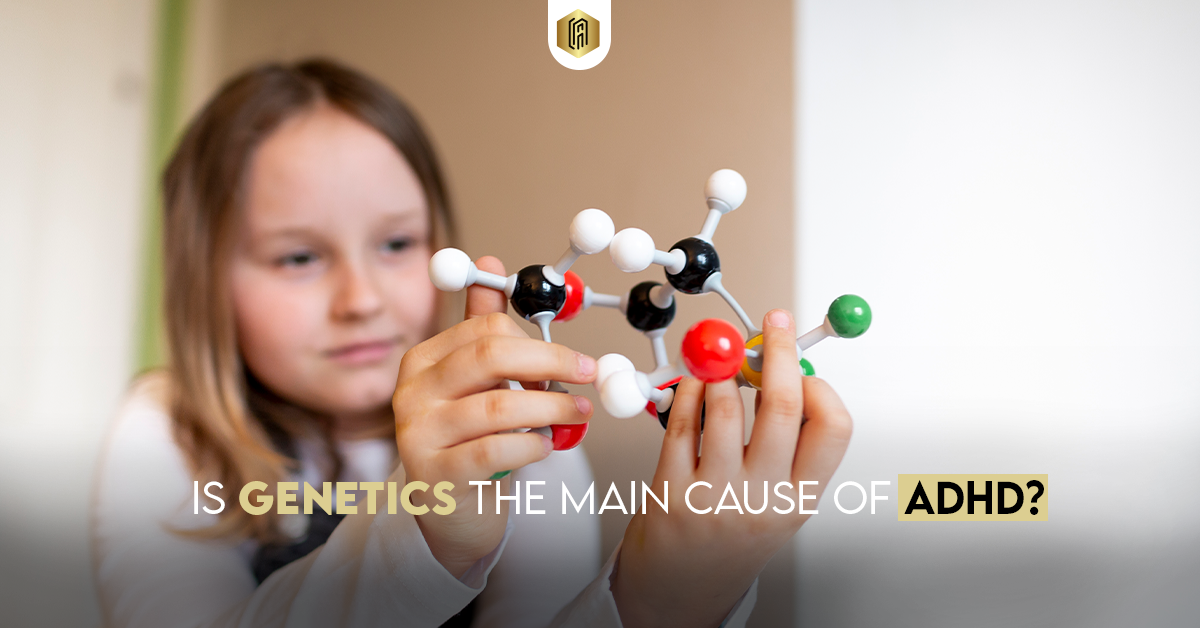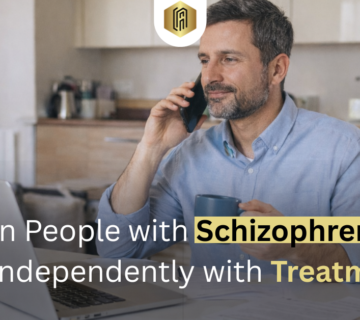ADHD stands for Attention-Deficit/Hyperactivity Disorder. It stops certain individuals from focusing, remaining still, or behaving in a measured manner.
Many men and women, along with children who have ADHD, are continually active. Paying attention can be a problem for some.
Is genetics the main cause of ADHD? Let’s get into it.
What Is ADHD?
ADHD is a brain condition. It affects how people pay attention, stay calm, and control their behavior. Some common signs of ADHD include:
- Not listening when someone talks
- Forgetting things often
- Moving around a lot, even when they should be sitting still
- Having trouble waiting for their turn
- Getting distracted easily
People with ADHD are not responsible for their actions. They think differently from others.
It is essential to learn how it started to start managing it effectively. We’re ready to help you manage the process at Ascension Psychiatric Services. Phone or email us now for a detailed conversation and begin taking control of your ADHD.
What Causes ADHD?
Physicians and researchers are still discovering what triggers ADHD. But one thing is clear: there is not just one cause. Many things work together to cause ADHD. These include:
- Genes (what we get from our parents)
- Things that happen before birth
- Brain injuries
- How a child grows up
Let’s look closer at genetics and then the other causes, too.
What Are Genetics?
Genetics means the things we get from our parents through their DNA. Your body uses DNA as an instruction. It affects your hair color, height, and how you process information.
If ADHD tends to run in families, there is a fair chance it is genetic. In that case, if your guardian, sibling, or any family member has been diagnosed with ADHD, it could mean you have it, too.
Is Genetics the Main Cause of ADHD?
Genes are a principal cause of ADHD, though there are various other reasons as well. Research indicates that ADHD is caused mainly in about 70 to 80 percent of cases by DNA dynamics. That means most cases of ADHD involve having genes that contribute greatly.
Still, having the genes for ADHD isn’t always a sure sign that a person will develop it. There are also other essential things.
Other Factors Contributing to ADHD
Besides genetic susceptibility, various factors might lead to the symptoms of ADHD.
-
Brain Development
In addition, there may be subtle differences in brain development among some of the children with ADHD. The areas of the brain responsible for attention and behavior may be smaller or slower to function.
-
Complications During Pregnancy
Mother’s smoking, drinking, and medical conditions while pregnant can negatively impact the child’s brain maturation. It raises the unborn child’s chances of developing ADHD.
-
Early Arrival or Low Weight
Being born too early or too light may put the infant at greater risk later for ADHD.
-
Harmful Environmental Substances
Toxins like lead (found in dilapidated paint or polluted water) may disrupt brain development and increase the risk of developing ADHD.
-
Stressful Childhood
Minors who face high stress or trauma may show ADHD symptoms. It can make symptoms worse.
Can ADHD Be Cured?
While there’s no treatment for ADHD, it can be comfortably controlled with professional care.
At Ascension Psychiatric Services, Anthony J. Hall, MSN, APRN, PMHNP-BC, gives careful, compassionate treatment to those with ADHD who are children, teens, or adults.
With the proper support, individuals with ADHD can succeed.
Common ADHD treatments include:
- Medicine: Some children take medication to assist them in concentrating.
- Therapy: Consulting a therapist can help children learn to manage their feelings.
- Support at School: Supporters can help students with ADHD stay grounded and peaceful.
- Healthy Habits: Savoring wholesome dishes, enjoying deep sleep, and staying on the move can supercharge your mind.
What Should Parents Know?
If you feel that your child has ADHD, consult with an expert without delay. If heart conditions are identified early and managed swiftly, it can rescue lives.
It’s essential to give kids with ADHD love, patience, and understanding. They do not intentionally put in and try to be purposely bothersome. Extra support is required for their brain to stay calm and on track.
At Ascension Psychiatric Services, we provide tailored ADHD evaluations and treatments for kids, teens, and adults. We proudly serve Atlanta, GA, and Washington, DC. We offer in-person and virtual appointments for your convenience.
ADHD Is Nothing to Be Ashamed of
Having ADHD doesn’t mean something is wrong with you. Many successful people, from artists and athletes to doctors and entrepreneurs, have ADHD and use their strengths to do amazing things.
At Ascension Psychiatric Services, we maintain that every child and adult should receive the guidance they need to achieve. We’re here to lead you every step of the way.
Final Thoughts
So, is genetics the leading cause of ADHD? In most cases, yes, genetics plays a big role. But it’s not the only reason. How a baby grows before birth, how their brain works, and their life experiences also matter.
If ADHD runs in your family or you notice signs in your child, don’t wait. Reach out to the compassionate team at Ascension Psychiatric Services. With the proper care, anyone with ADHD can learn, grow, and shine. Reach out today and discover how we can help you or your child shine.
FAQs
Q: How does ADHD affect a person’s life?
ADHD impacts daily life, but with proper support, people can succeed. Many with ADHD excel in creative and athletic areas.
Q: Is it true that people with ADHD can succeed in life?
Absolutely! Many people living with ADHD can achieve a lot in both their jobs and personal situations. Many are creative and have ideas that are different from anyone else’s. Treatment and support give people with ADHD the chance to do well.
Q: Do some people stop having ADHD as they get older?
While ADHD symptoms may adjust as a person gets older, it is not something you can overcome once it happens. Symptoms of ADHD usually decrease for many adults, but a few linger. With treatment, people with cancer can lead better lives.






No comment